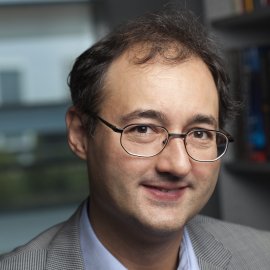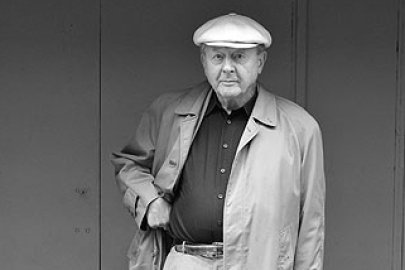Intelectual property law, University of Glasgow, UK

Octobre 2014 - Juin 2015
Dr Andreas RAHMATIAN is a Senior Lecturer at the University of Glasgow, School of Law, since January 2010 where he teaches intellectual property and commercial law. From 2006-2009 he worked at the University of Leicester and from 2002-2006 at the University of Stirling, where he taught mostly intellectual property law, equity and trusts and commercial law subjects. Andreas RAHMATIAN obtained his first degree in law and his PhD in private law, as well as another first degree in musicology and history from the University of Vienna, and an LLM from the University of London. He had trained as a solicitor with a City firm in London before he embarked on his academic career.
His research interests are in the areas of intellectual property law; property law, property and intellectual property theory; commercial law; private law; comparative private and commercial law, Civil Law systems; modern legal history (from 1700), law, intellectual history and social theory; copyright, music, art, aesthetics and the law. His book, Copyright and Creativity: The Making of Property Rights in Creative Works (Edward Elgar, 2011), which was shortlisted for the Peter Birks Prize 2012 of the Society of Legal Scholars, deals with the ‘propertisation’ and commodification of human (artistic) creativity through copyright and the development of a ‘neo-feudalism’ as a socio-cultural consequence.
"A critical theory of money"
Not much research can be found which deals with the very nature of money. Although money is a legal, normative artifice, lawyers today concentrate on technical aspects of transfer and ownership, but not on the underlying concept of money. Legal scholars discussed money until the late nineteenth century and then seemed to have handed the matter over to economists who in turn presuppose the existence of money without questioning it, as is especially the case in the prevalent microeconomic neo-classical approach.
This project led by Andreas RAHMATIAN at IAS-Nantes wants to develop a theory of money, though not from an economic angle, but in an interdisciplinary manner comprising law, political philosophy (the source of monetary theory and the classical school of economics), history, anthropology, sociology, and to some extent literature and semiotics, because money today is also a psychological phenomenon created by signs and text. This approach emphasises the fact that money is not primarily an economic conception, but a legal one, together with an anthropological aspect and with a strong sociological-philosophical and psychological element. The project also tries to show that law and the humanities are better-suited disciplines for the explanation of money and its effects than economics.
RAHMATIAN Andreas. Lord Kames Legal and Social Theorist . Edinburgh University Press, 30 May 2015, 384 p.
RAHMATIAN Andreas. Copyright and Creativity: The Making of Property Rights in Creative Works. Cheltenham: Edward Elgar, 2011, 314 p.
RAHMATIAN Andreas. A Fundamental Critique of the Law-and-Economics Analysis of Intellectual Property Rights. Marquette Intellectual Property Law Review, 2013, 17(2), p.192-230
RAHMATIAN Andreas. Originality in UK Copyright Law: The Old “Skill and Labour” Doctrine Under Pressure, International Review of Intellectual Property and Competition Law, 2013, 44(4), p.4-34
RAHMATIAN Andreas. Intellectual Property and the Concept of Dematerialised Property. In BRIGHT S, Modern Studies in Property Law, Vol. 6, 2011, p.361-383
RAHMATIAN Andreas. The Property Theory of Lord Kames (Henry Home), International Journal of Law in Context, 2006, 2(2), p.177-205
